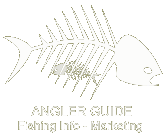Anglers flock to
the Salmon River
By Kelton Hatch
NORTH FORK — Sparkling water dotted with drift boats and
wading anglers is what residents in the small towns from Salmon to
Riggins have seen for the past three months along the Salmon
River.
Anglers, thousands of anglers from around the country have come
to Idaho in pursuit of the steelhead. The Department of Fish and
Game estimated 44,000 anglers have caught around 43,400 fish,
since one of the biggest steelhead runs in history hit the borders
of Idaho this fall.
“Somewhere around 230,000 come over this spring,” said Dick
Scully, Fish and Game regional fisheries biologist. “This is the
most fish we have had over Bonneville Dam since they started
keeping records in 1938.
“This is a great year to catch a fish,” he continued.
“People will continue to fish until the slush ice starts pushing
them off the water.”
Kent Sawyer of Pocatello, who has been chasing steelhead since
1960, is loving this year’s fishing. He pulled out 20 fish on
his second fishing trip.
“This is
Tom
Keegan, of Salmon, gets his photo taken with his first
steelhead by his wife Beth Waterbury.Journal photos by Kelton
Hatch
 |
much better than any year I can remember,” said Sawyer. “I was
up here twice in October and I had to come back because I
couldn’t leave it alone. The fishing was too good. It’s the
best I have ever seen. As long as the weather holds, I’m coming
back again.”
Sawyer generally takes the trip alone and hooks up with friends
from Pocatello on the river.
“I don’t know who will be down there, but there is always
one of my friends from Pocatello,” he continued.
On Sawyer’s first trip in October he was skunked, but on his
return trip a week later he landed a bunch.
“I caught around
Ray
Reynolds of Salmon caught this giant steelhead. It weighted 14
1/2 pounds and measured 34 1/2 inches long.
 |
20,” he says. “I don’t keep them, though. When you’re
up here for seven or eight days you can’t keep them fresh. If I
catch one this time closer to the end of my trip I might just keep
one.”
Other avid anglers from the around the country have headed to
North Fork in search of steelhead.
“This has been a really busy fishing season,” says Ken
Hill, owner of the North Fork store and cafe. “I haven’t ever
seen it like this and I’ve been here for 26 years. We are
getting people from all over, a lot from Pocatello and Idaho Falls
areas and quite a few from Utah and Washington.”
“This year has been fabulous,” says Butch Bradshaw, an
employee at the North Fork Store. “There’s a lot of fish out
there and there’s a lot of people coming to catch them.
“If you can’t catch a fish this year there’s something
wrong with you,” he continued.
Fishing should continue to be good in the area for the next few
weeks or until cold weather moves in and freezes the river.
“You just have to come up and take your chances,” says
Sawyer. “It’s fishing. You have good days and bad days and you
can have someone next to you catch a bunch of fish and you might
not catch one. But it’s still a lot of fun.”
The steelhead season will continue to be open until the end of
April. Next spring is expected to continue to be good with the
same batch of fish in the river moving up to their spawning areas.
“About 80 percent of the fish are hatchery fish,” says
Scully. “After the ice leaves the fishing will be dynamite in
the spring as they start funneling upriver into the hatcheries
near Challis and Stanley.”
Fishing gear
For first timers on the water, here are a few ideas on gear to
use on steelhead:
Spin fishing
Use a heavy pole with around 10-pound test line. Steelhead will
weigh five to 15 pounds.
With the water cooling, it is recommended that anglers fish
with a corky, with a piece of bait. Bait could include night
crawlers, a piece of uncooked shrimp or salmon eggs.
Fishermen could also try a bright-colored weighted jig with a
feather tail in any bright color. To fish with this, anglers need
a pencil bobber and a bobber stop. Try to get an estimated depth
on the water and place the bobber stop on the line so the jig will
be just off the bottom of the river.
The bobber stop allows the bobber to slide down the line to the
jig when the angler is reeling in a fish or casting. When the line
is cast, back the bobber slides up the line to the bobber stop and
suspend the jig just a few inches from the bottom, where the fish
lie as the temperature of the water goes down.
Fly fishing
It is recommended that fly fishermen use weighted streamer
patterns in bright colors. Patterns like the green butt skunk or
polar shrimp are popular.
They should cast it on a sink tip or sinking head fly line with
plenty of backing. The sinking lines will help get the bug down
closer to the fish.
Fly rods should be in the six to 10 weight range and around
nine feet.



